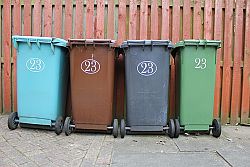

The UK government is planning significant reforms to waste and recycling management in England. However, councils across the country fear that such reforms would prove chaotic and unworkable.
Currently, the local councils in England have discretion over what, how and when waste is collected from households and businesses, and the only requirement they must meet is that recyclable waste is collected separately unless it is not technically or economically practicable or there is no real environmental benefit of separate collections.
In 2019, the UK government published a consultation on "Consistency in Household and Business Recycling Collections in England", where two main proposals that were up for discussion included:
After that consultation concluded, another consultation on the same subject was published in 2021, which aimed to align the recycling targets and separate collections to those set out in the Environment Bill (now the Environment Act 2021). The outcome of this consultation and the government's response will be published in due course, with new legislation to follow.
These proposals aimed to increase the recycling rates in each local authority and simplify waste management. However, when speaking with the BBC, some council leaders across the country reported that these proposals, if implemented, could backfire, with a Conservative councillor from Sevenoaks District Council, Peter Fleming, saying that these reforms would mean more bin lorries on the road and nothing to encourage the behavioural change to improve recycling rates.
In England, the recycling rates have stalled over the past few years and have been around 45% since 2015 and are lagging behind the interim targets to reach a 65% recycling rate by 2035.
According to the District Council's Network lobby group, the reforms would cost around £465m per year to implement in the first seven years, but the government reassured that it will "fully fund" the new waste collection burdens placed upon the local authorities.
Head of the operational services at South Holland District Council, Charlotte Paine, said that the idea of separating recyclable waste collection is appealing in principle, but "trying to say that has to be done in a particular way just will not work given the complexities of different areas.
"Much depends on where your waste goes, your local recycling facility, and how well they can deal with that. That's where this consistency is going to fall down."